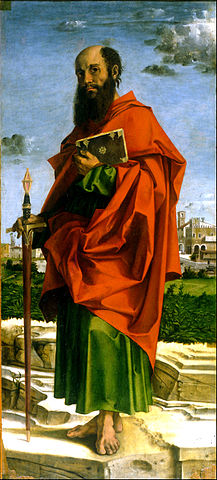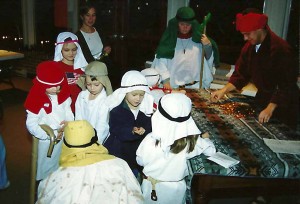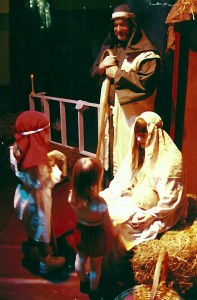Given our hedonistic culture it’s no surprise Mardi Gras, that pre-eminent celebration of personal indulgence, has found broad acceptance while the season of Lent has not. Themes of penitence, preparation, and reconciliation do not resonate with our society’s consumerist or narcissistic proclivities.

Pop culture and marketers urge us to gratify our desire for pleasure and convenience whatever the cost and tell us that we each deserve such things. Lent suggests we forgo certain pleasures for the sake of spiritual discipline in order to grow in our faith. Culture celebrates the ego-self and places each person at the center of his or her own virtual world with every perceived need and whim being catered to. Christ calls us to self-sacrifice, saying: “Whoever does not take up the cross and follow me is not worthy of me. Those who find their life will lose it, and those who lose their life for my sake will find it.” (Matthew 10:38-39)
The conflict between the values of secular society and those commanded by Christ make Lent the most profoundly counter-cultural season of the church year. Followers of Christ can expect no support from the culture around them as they try to deepen their relationship with God or grow spiritually. For this reason, it is important that the church help its members keep a holy Lent. One way your church supports your growth as a disciple of Christ is by scheduling dinners and programs each Wednesday in Lent.
Ash Wednesday Worship (imposition of ashes if desired) Sanctuary, March 5 at 7:00 PM
Wednesday Lenten Dinners & Programming March 12, 19, 26 and April 2, 9
(To be held in Fellowship Hall)
Dinner at 6:00 PM followed by prayers and song at 6:50 PM
Half hour programs for adults and children on Christian discipleship 7:00 to 7:30 PM
Children will be learning the good news about Jesus as they add one reminder bead each week to a bracelet in a program entitled, “The Good News Beads.”
The adult program is entitled “Jesus Still Lead On” and is a study of Christian discipleship based on the Moravian Covenant for Christian Living and The Foundation of Our Faith by The Rev. Kevin Frack of the Moravian Church in America, Southern Province.
Holy Week Reading Services April 14-16, at 7:00 PM
Maundy Thursday Holy Communion April 17th at 7:00 PM
Good Friday Tenebrae Service April 18th at 7:00 PM
– Pastor Derek
Pastor Derek French’s Lent message appears in The Star, March 2014


 In an age before supermarkets and seed catalogs the harvest season could be an anxious time of year. The quantity and quality of the
In an age before supermarkets and seed catalogs the harvest season could be an anxious time of year. The quantity and quality of the  Following the “Great Recession” of 2008-2009 many gained new appreciation for the role continuing education plays in making oneself employable. In today’s marketplace, no one can afford to be a “one trick pony.” The value of on the job training and continuing education has long been acknowledged. What’s new in this job market is that what once was required to thrive, is now required just to survive.
Following the “Great Recession” of 2008-2009 many gained new appreciation for the role continuing education plays in making oneself employable. In today’s marketplace, no one can afford to be a “one trick pony.” The value of on the job training and continuing education has long been acknowledged. What’s new in this job market is that what once was required to thrive, is now required just to survive. Let love be genuine; hate what is evil, hold fast to what is good; love one another with mutual affection; outdo one another in showing honor. Do not lag in zeal, be ardent in spirit, serve the Lord. Rejoice in hope, be patient in suffering, persevere in prayer. Contribute to the needs of the saints; extend hospitality to strangers. Bless those who persecute you; bless and do not curse them. Rejoice with those who rejoice, weep with those who weep. Live in harmony with one another; do not be haughty, but associate with the lowly; do not claim to be wiser than you are. Do not repay anyone evil for evil, but take thought for what is noble in the sight of all. If it is possible, so far as it depends on you, live peaceably with all. (Romans 12: 9-18)
Let love be genuine; hate what is evil, hold fast to what is good; love one another with mutual affection; outdo one another in showing honor. Do not lag in zeal, be ardent in spirit, serve the Lord. Rejoice in hope, be patient in suffering, persevere in prayer. Contribute to the needs of the saints; extend hospitality to strangers. Bless those who persecute you; bless and do not curse them. Rejoice with those who rejoice, weep with those who weep. Live in harmony with one another; do not be haughty, but associate with the lowly; do not claim to be wiser than you are. Do not repay anyone evil for evil, but take thought for what is noble in the sight of all. If it is possible, so far as it depends on you, live peaceably with all. (Romans 12: 9-18)

